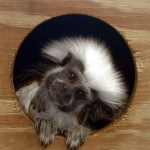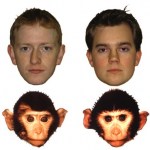
Rarely does country music make me wish youtube had an auto-repeat function.
"Need You Now" by Lady Antebellum. Live at the 2009 Country Music Awards.
What are the cognitive and neural systems that allow us to build buildings, play checkers, do multivariate statistics, receive DVDs by mail, follow Dr. Isis's pesto recipe, or navigate the tangled LA freeways?
You may ask: what can studying children and non-human animals tell us about the complexity of the human experience? Only educated human adults engage with formal mathematics, cooking, or map reading. Right?
This is a reasonable question to ask. But when human adults show complex, possibly culture-specific skills, they emerge from a set of psychological (and thus neural) mechanisms…
Any artists out there?
As my Photoshop skills leave something to be desired, I am opening up a contest for any reader who would like to send me ideas for banners, as well as a square logo, for the Thoughtful Animal.
Details:
The banner image must be 756 pixels wide by 93 pixels high.
The logo needs to be square (think 200x200 or 300x300 pixels).
Both should be colorful and contain one or more animals, human or non-human.
The banner and logo should both include the words "The Thoughtful Animal." The logo may as well.
The banner and the logo each may include some variation of the words "…
As Psychology and Neuroscience Editor for ResearchBlogging.org, each week I choose 3-4 of the best posts from around the blogosphere in those categories. Here are my picks for this week:
Why might spite have evolved? Upon first glance it may not seem a particularly useful survival strategy. But Tom Rees, who writes at Epiphenom, reviews a paper that suggests spite may simply be the inverse of kin-directed altruism, with the same net outcome.
Want to trick your co-workers into getting more exercise? Travis Saunders, who writes at Obesity Panacea, says, "Place a sign next to your workplace…
The party isn't over yet! Here's another helping of Monday Pets. Enjoy!
Wild Dog crawled into the Cave and laid his head on the Woman's lap... And the Woman said, "His name is not Wild Dog any more, but the First Friend."
--Just So Stories, Rudyard Kipling.
Archaeological evidence indicates that dogs were already a part of human society around the end of the Ice Age. Small dog skeletons have been unearthed in human communities as far back as 6- to 12-thousand years ago in Europe, the Middle East, and China. The jawbone of a domestic dog was found in a late Paleolithic grave in Germany, and…
The party continues! Today you get a double-dose of Monday Pets. Here's one from the archives. Later today, you can expect a new one.
I often write about animals that the average person does not interact with all that much on a day-to-day basis. Today, I introduce something I like to call "Monday Pets". The focus of Monday Pets will be the animals that we intentionally bring into our lives as pets. Sometimes those animals are even considered part of the family. Ever notice some weird behavior that you notice your pets doing? Want to know more about it? Email me. Always wanted to know if your…
Welcome to the new home for The Thoughtful Animal!
Welcome especially to new readers! To the old readers, I hope you'll enjoy the new place. Nothing big will change; but now I've got better technical support, a family of Sciblings (go check out their blogs!), a more powerful interface, and hopefully a more pleasant experience for you!
Take a few minutes to check out the site. You can read a little about me, and if you'd like you can peruse the old blog. I shall miss the old place, but am very excited to be joining the Borg Scienceblogs, and all my new Sciblings. Special thanks go to Dr. Isis…


